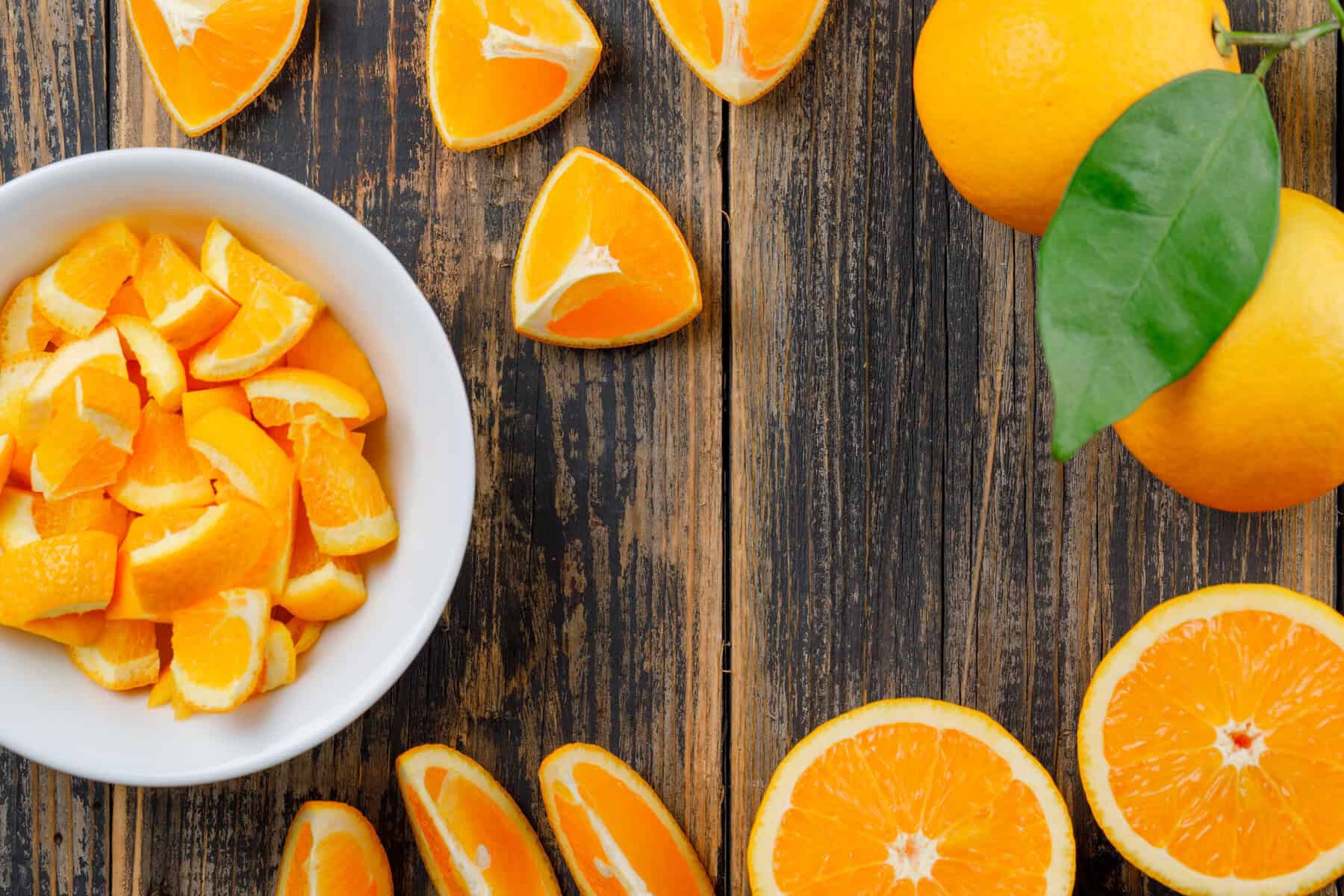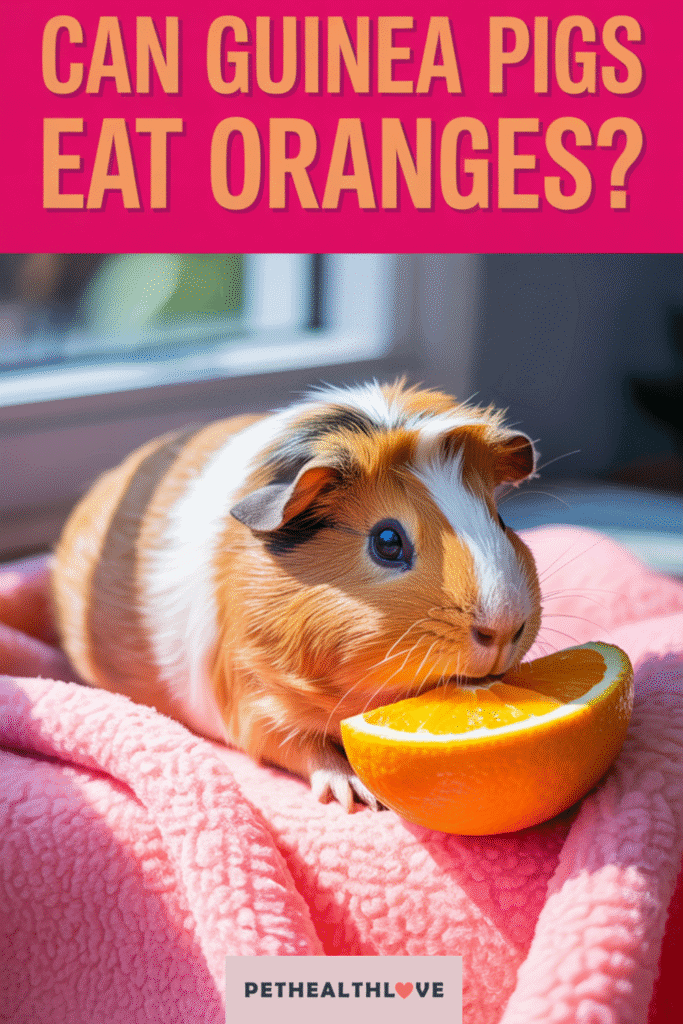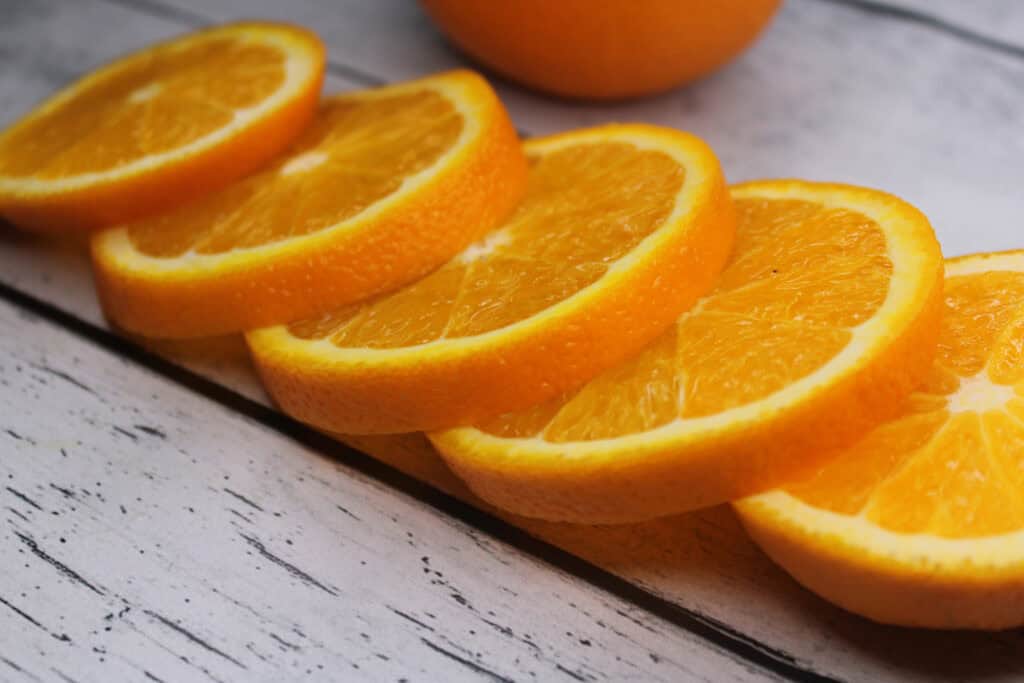If you’re a guinea pig parent, you’ve probably wondered about sharing some of your favorite snacks with your furry friend. Oranges are sweet, juicy, and packed with vitamins – but can guinea pigs eat oranges safely?
The short answer is yes, but with some important limits. Let’s dive into everything you need to know about feeding oranges to your guinea pig.
Affiliate Disclaimer: This post may contain affiliate links, which means we may earn a small commission if you purchase something through our links. This helps support our website and allows us to continue providing valuable content. See our full disclosure here.
Can Guinea Pigs Have Oranges?
Guinea pigs can eat oranges, but only in very small amounts. While oranges aren’t toxic to guinea pigs, they’re quite high in sugar and acid, which can cause problems if your pet eats too much.
Think of oranges as an occasional treat rather than a regular part of your guinea pig’s diet. Just like how we might enjoy a piece of cake now and then, your guinea pig can have a tiny bit of orange as a special snack.
Benefits of Oranges for Guinea Pigs
Oranges do offer some good things for your guinea pig:
Hydration – Oranges have lots of water, which can help keep your guinea pig hydrated, especially on hot days.
Antioxidants – These help protect your pet’s cells from damage and support overall health.
Fiber – A small amount of fiber can support healthy digestion.
Why Vitamin C Is So Important for Guinea Pigs
Just like humans, guinea pigs can’t make their own vitamin C, which means they need to get it from their food every single day. Vitamin C helps support a healthy immune system, protects cells from damage, and plays a key role in keeping tissues, joints, and skin strong.
If a guinea pig doesn’t get enough vitamin C, they can develop scurvy—a painful and serious condition that can even become life-threatening if left untreated. Scurvy can also lead to other health issues that require additional care.
Signs of vitamin C deficiency in guinea pigs include:
- Low energy or acting tired
- Unexplained weight loss
- Tooth grinding (a sign of pain)
- Sore or swollen joints
- Bruising or tiny red spots on the skin or gums
- Dental problems
- Diarrhea or soft poop
- A rough or patchy coat
- Changes in fur texture
- General signs of feeling unwell
Over time, a lack of vitamin C can affect your guinea pig’s bones, blood vessels, and connective tissues, so it’s really important to make sure they’re getting enough.
How Much Vitamin C Does a Guinea Pig Need?
On average, adult guinea pigs need about 10–30 mg of vitamin C per kilogram of body weight each day. Pregnant or nursing guinea pigs may need a little more to stay healthy. Offering a balanced diet with fresh veggies rich in vitamin C—like bell peppers and parsley—can help meet their daily needs.
💡 Vet Tip: Even though I give my own guinea pigs vitamin C–rich veggies like bell peppers and parsley, I still supplement with a daily vitamin C product. Guinea pigs can’t store this nutrient, so it’s easy for them to fall short—especially if they’re picky eaters or not feeling well.
I personally use Natural Balance Vitamin C because it’s easy to add to their food or a small treat. It’s a simple way to make sure they’re getting enough every day.
The Risks of Too Much Orange
While oranges have some benefits, there are several reasons to be careful:
Oranges are naturally sweet, but too much sugar can lead to weight gain, tooth problems, and digestive upset in guinea pigs.
The citric acid in oranges can irritate your guinea pig’s mouth and stomach if they eat too much. Some guinea pigs are more sensitive to acid than others.
Too much orange can cause diarrhea, gas, or stomach pain.
If your guinea pig fills up on oranges, they might not eat enough of their regular pellets and hay, which are more important for their health.
Check out this adorable TikTok of my guinea pig Rosie munching on a slice of orange—it’s a sweet moment you don’t want to miss!
@pethealthlove Rosie loves oranges🍊🧡#guineapig #guineapigsoftiktok ♬ Happy Dog. – Líricus Instrumental
How Much Orange Can Guinea Pigs Eat?
When it comes to feeding oranges to your guinea pig, less is definitely more. Only offer a small wedge or a few tiny pieces at a time—about the size of your thumbnail is a good serving.
Oranges should be given no more than once or twice a week as an occasional treat. And always remember to remove any seeds before offering them to your pet, as they can be a choking hazard.
How to Safely Feed Oranges to Your Guinea Pig
To safely feed oranges to your guinea pig, it’s best to follow a few simple steps.
Start by offering just a tiny piece if they’ve never had orange before—this lets you see how they react.
Always wash the orange thoroughly under clean water to remove any dirt or chemicals from the peel. Be sure to remove the peel entirely, as it can be tough and hard for guinea pigs to digest.
Cut the fruit into small, bite-sized pieces to prevent choking. After your guinea pig eats the orange, keep an eye out for any signs of stomach upset or changes in their bathroom habits.
And don’t forget to remove any uneaten pieces after a few hours so the fruit doesn’t spoil in the cage.
Signs Your Guinea Pig Shouldn’t Have Oranges
Some guinea pigs don’t handle citrus fruits well. Stop giving oranges if you notice:
- Diarrhea or loose stools
- Loss of appetite
- Lethargy or low energy
- Mouth sores or irritation
- Excessive drooling
- Stomach pain (your guinea pig might hunch over or seem uncomfortable)
Better Fruit Options for Guinea Pigs
While oranges can be offered as a once-in-a-while treat, their high acidity and sugar content make them less ideal for frequent feeding. Fortunately, there are several other fruits that are gentler on your guinea pig’s digestive system and still offer important nutrients—especially vitamin C, which guinea pigs need in their diet every day.
Here are some great fruit (and fruit-like) alternatives that your guinea pig might enjoy more regularly:
Apples
A crunchy, refreshing treat that’s lower in acid than oranges. Be sure to remove the seeds and core, as apple seeds contain trace amounts of cyanide, which can be toxic to small pets. A small slice once or twice a week is usually plenty.
Bell Peppers
Technically a fruit, bell peppers—especially the red variety—are a guinea pig superfood. They’re packed with vitamin C and low in sugar, making them safe for daily feeding. Many guinea pigs love the sweet crunch!
Strawberries
A juicy favorite that’s high in vitamin C and other antioxidants. Their natural sugar content means they should still be fed in moderation, but they’re a great occasional treat that most guinea pigs adore.
Blueberries
These tiny berries are easy for guinea pigs to eat and offer a burst of flavor along with fiber and antioxidants. Just a couple at a time is enough due to their sugar content.
Cantaloupe
Hydrating, sweet, and full of vitamins like A and C, cantaloupe is a good fruit to rotate in occasionally. Remove the rind and seeds, and offer in small, bite-sized chunks.
By choosing lower-acid, vitamin C–rich fruits like these, you’ll be offering your guinea pig tasty variety without upsetting their digestive system. Just remember: fruits are treats, not staples—veggies and hay should always make up the bulk of their diet!
What About Orange Juice?
Never give your guinea pig orange juice.
Commercial orange juice is way too high in sugar and often has added ingredients that aren’t good for guinea pigs. Stick to fresh fruit only.
The Bottom Line on Guinea Pigs and Oranges
Guinea pigs can enjoy oranges as a special treat, but moderation is key. A small piece once or twice a week is plenty. Always introduce new foods slowly and watch how your pet reacts.
Remember that the most important parts of your guinea pig’s diet should be:
- High-quality hay (about 80% of their diet)
- Guinea pig pellets
- Fresh vegetables
- Clean water
Fruits like oranges should only make up a tiny part of what they eat – think of them as the dessert, not the main course.
Final Tips | Can Guinea Pigs Eat Oranges?
Your guinea pig will probably love the sweet taste of orange, but remember that their health comes first. When in doubt, stick to foods you know are safe, and save the more adventurous treats for special occasions. Always introduce new foods slowly, watch for any unusual reactions, and keep portions small.
A healthy guinea pig starts with a balanced diet—and the occasional treat served with care.
Want More Guinea Pig Tips?
Want more info on what to feed your guinea pig? Don’t miss my full guide on what guinea pigs can eat, and be sure to check out my post on guinea pig lifespans (how long DO they live?).
If you’re new to guinea pig care or just want to brush up on the basics, I’ve also got helpful posts on guinea pig teeth (yes, they keep growing!) and a printable guinea pig care sheet you can download to keep track of their daily needs.
Your guinea pig deserves the best—and I’m here to help make that easier for you.
Frequently Asked Questions
Can guinea pigs eat frozen fruit?
It’s not recommended. Frozen fruit can upset a guinea pig’s sensitive digestive system. It may cause bloating and can carry bacteria if not handled properly. Fresh fruit is always the safer choice.
Can guinea pigs eat cooked or canned fruit?
No. Cooked fruit loses many of the nutrients your guinea pig needs and may contain added ingredients that aren’t safe. Canned fruit is also a poor choice—it often has added sugar and syrup, which can be harmful. Stick to plain, fresh fruit instead.
Dr. Georgina Ushi is a veterinarian and freelance medical writer. She earned her Doctor of Veterinary Medicine degree from the University of Florida College of Veterinary Medicine in 2009. Dr. Ushi has worked for 16 years in the Tampa Bay area, providing compassionate care to dogs, cats, and exotic pets.
In addition to her clinical work, she serves as an adjunct instructor at Florida A&M University, teaching in the veterinary technology program. Dr. Ushi also consults for pet well-being brands and writes evidence-based pet health content for Pet Health Love, as well as for PetMD. She is passionate about educating and empowering pet owners through clear, trustworthy information.
Her professional interests include emergency medicine, dermatology, pet telehealth, nutrition, and wildlife medicine.












Leave feedback about this